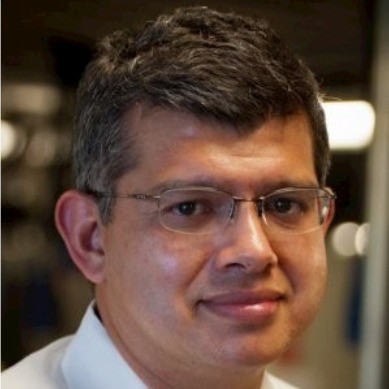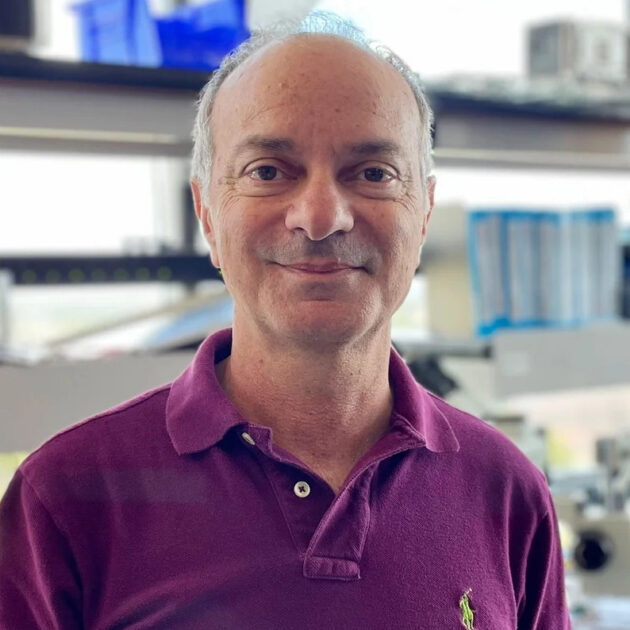— Rami Sinno, director of engineering at Amazon Web Services’ Annapurna Labs — ground zero for the tech giant’s silicon chip development — is reportedly leaving the company. Sinno will build the high-demand processors for United Kingdom-based Arm, according to Reuters, which broke the news.
Before joining AWS in 2019, Sinno was a lead engineer for Arm for more than five years based in the Austin area. Sinno has worked on computer processing chips since his first role at Intel in 1989.
In an interview last year with IEEE Spectrum, Sinno spoke of his decision to join AWS. “The interesting stuff is happening when you control the full hardware and software stack and deliver directly to customers,” he said.
At Arm, Sinno will aid the semiconductor and software company in developing “its own complete chip,” Reuters reported.

— Sean Alexander, a former Microsoft AI executive who logged more than 25 years at the tech giant, is now senior vice president of connectivity ecosystems at the global communications company Lumen Technologies.
“Lumen is redefining what digital networking infrastructure means in the AI era and that opens the door to new kinds of partnerships, innovation, and value creation,” Alexander said in a statement. “I’m thrilled to join a company building the connective tissue between our customers, our technology and the ecosystem around us.”
Alexander’s past positions at Microsoft included principal director roles of engineering for cloud and AI for industry, and of business AI for Microsoft AI and Research. He served as president of the consulting firm Phoenician Advisors for more than two years after departing the Redmond, Wash., software giant.

— Former Microsoft director Cyrill Glockner joined Sophia Space as vice president of strategic partnerships and product strategy.
“Space is no longer science fiction, it’s becoming the infrastructure layer for Earth’s most compute- and energy-intensive technologies,” Glockner said on LinkedIn. The company is adding “intelligence to satellite missions in low Earth orbit and expanding to support full-scale AI workloads…”
Glockner was with Microsoft for 14 years ending in 2013, and later rejoined the company for a five-year run as director of business AI that concluded in 2023.

— Ritesh Daryani is the new chief human resources officer for Siteimprove, which helps customers improve the quality, accessibility and search engine optimization of their websites. The company is based in Bellevue, Wash., Copenhagen, Minneapolis and London, and Daryani will be located at the company’s Bellevue office.
Daryani was previously at the healthcare tech company Edifecs for nearly a decade in the role of chief people officer. Past employers include Expedia, Infosys, IBM and others.
“As we enter our next phase of growth and scale, [Daryani’s] leadership and deep expertise in building world-class teams will be instrumental in shaping our culture and empowering our people to achieve extraordinary results.” said Siteimprove CEO Nayahi Nayyar in a statement.

— Jenny Fu is now head of finance and operations for Dropzone AI, a Seattle cybersecurity startup. The company last month raised a $37 million Series B round.
Fu joins Dropzone from Bellevue’s Educative where she served as global vice president of finance and operations. Fu’s other roles include positions at PicMonkey, Starbucks and Quantum. She also worked for ExtraHop during a run that overlapped with Dropzone CEO and founder Edward Wu.
— Gavin Hewitt, a long-time sales leader and an operating partner at the Seattle venture capital firm Ascend, is now CEO of Velou. The New York City startup is using AI to promote a brand’s product visibility online. Velou has created a tool that self-optimizes the content of online shopping catalogues to reflect real-time insights of consumer behavior.
Hewitt was previously Velou’s chief operating officer, joining the company last year. His past employers include Attentive, Yonder, GiftNow and others.

— Bernardo Mendez-Arista shared news that he is CEO of gatein.ai, a Seattle startup developing shipping container management technology. His previous roles include numerous product management positions at wide-ranging companies.
“While we’re keeping the details under wraps for now, I can share that our solution has the potential to revolutionize how ports and warehouses manage container flow — making operations faster, more accurate, and less expensive,” Mendez-Arista said on LinkedIn.
— Former Salesforce vice president Justin Beck is now CEO of Gravyty, a Massachusetts-based startup that facilitates alumni donations and engagement. The company also has an office in Seattle. The news follows Gravyty’s merger with Ivy.ai and Ocelot and its acquisition of Athlete Network.
Read the full article here










